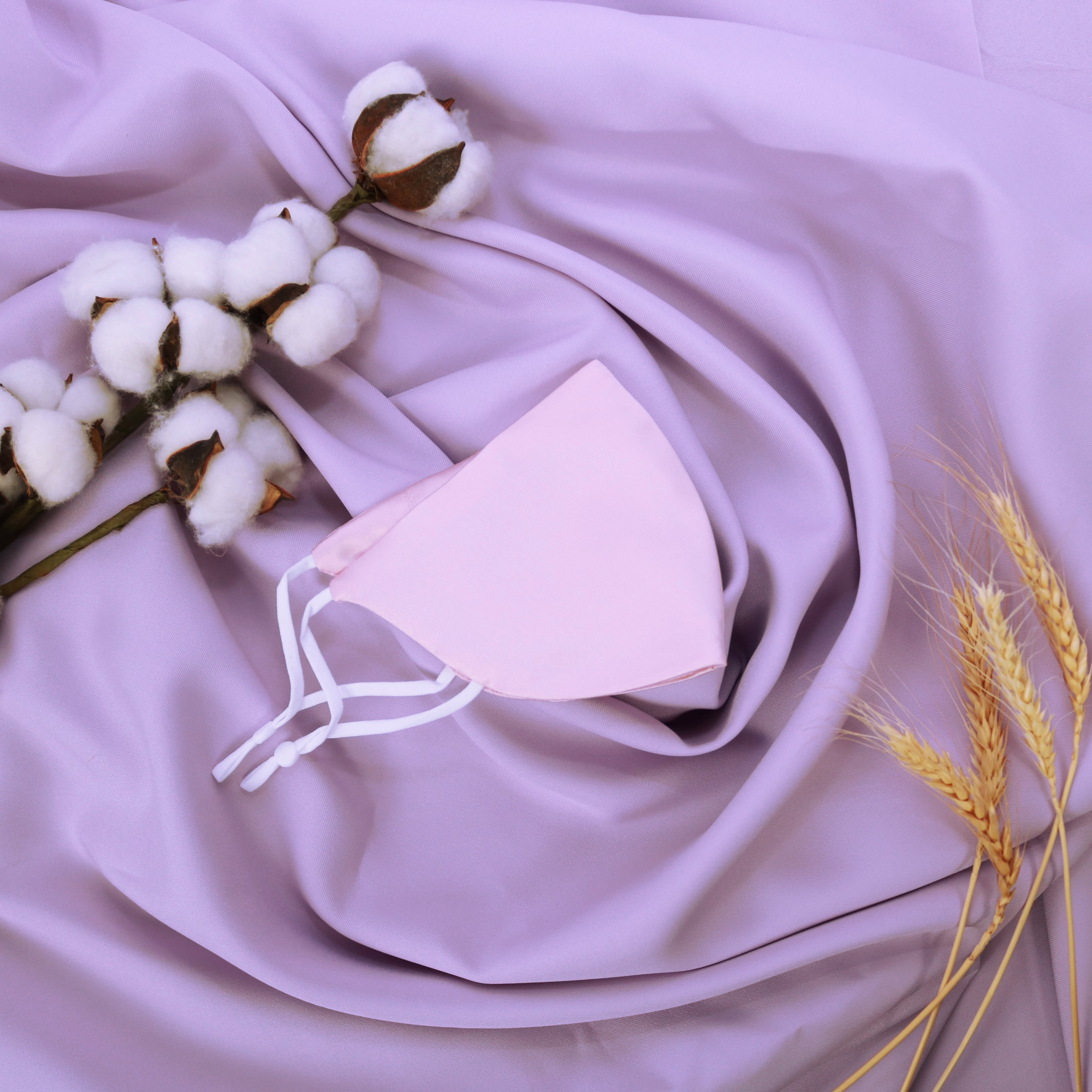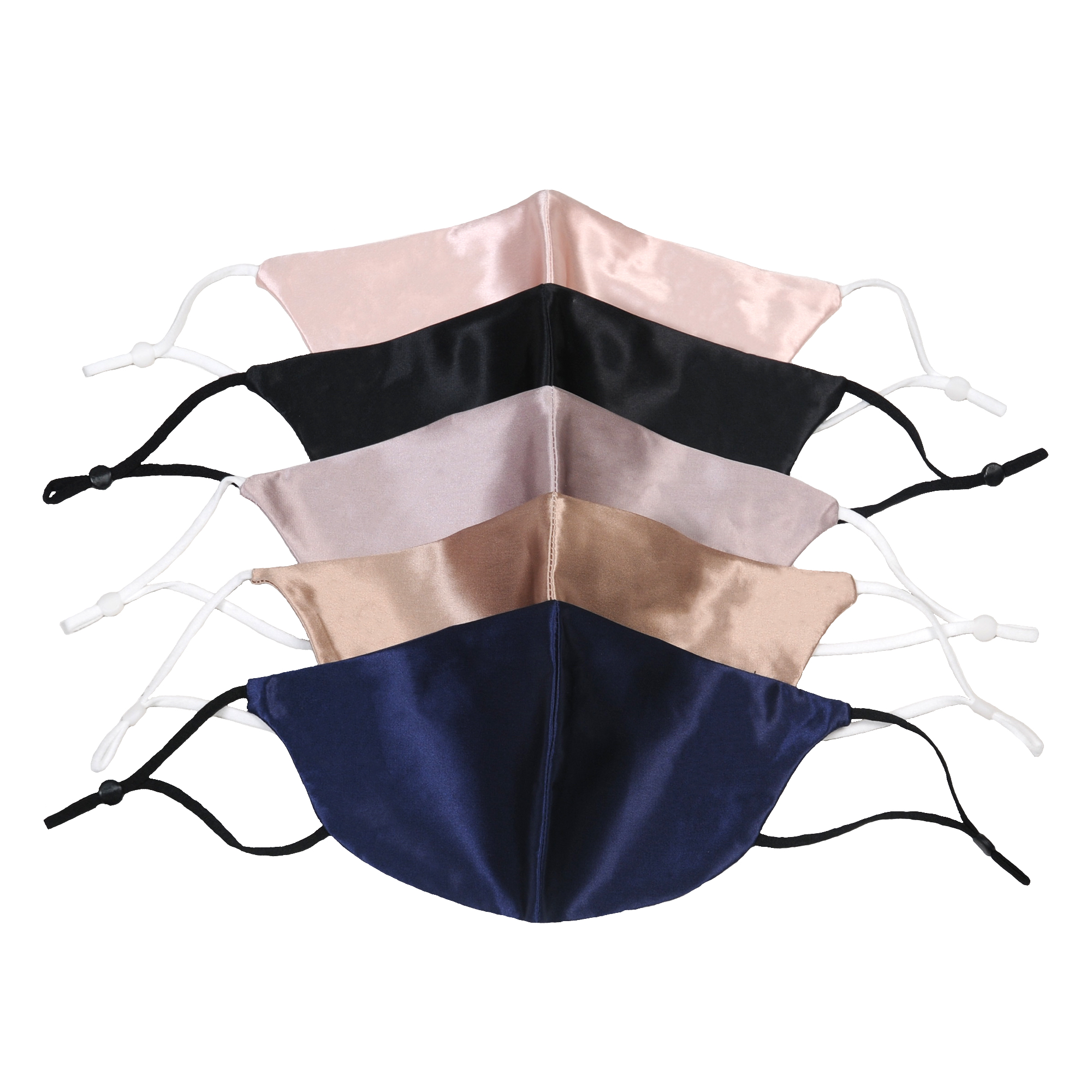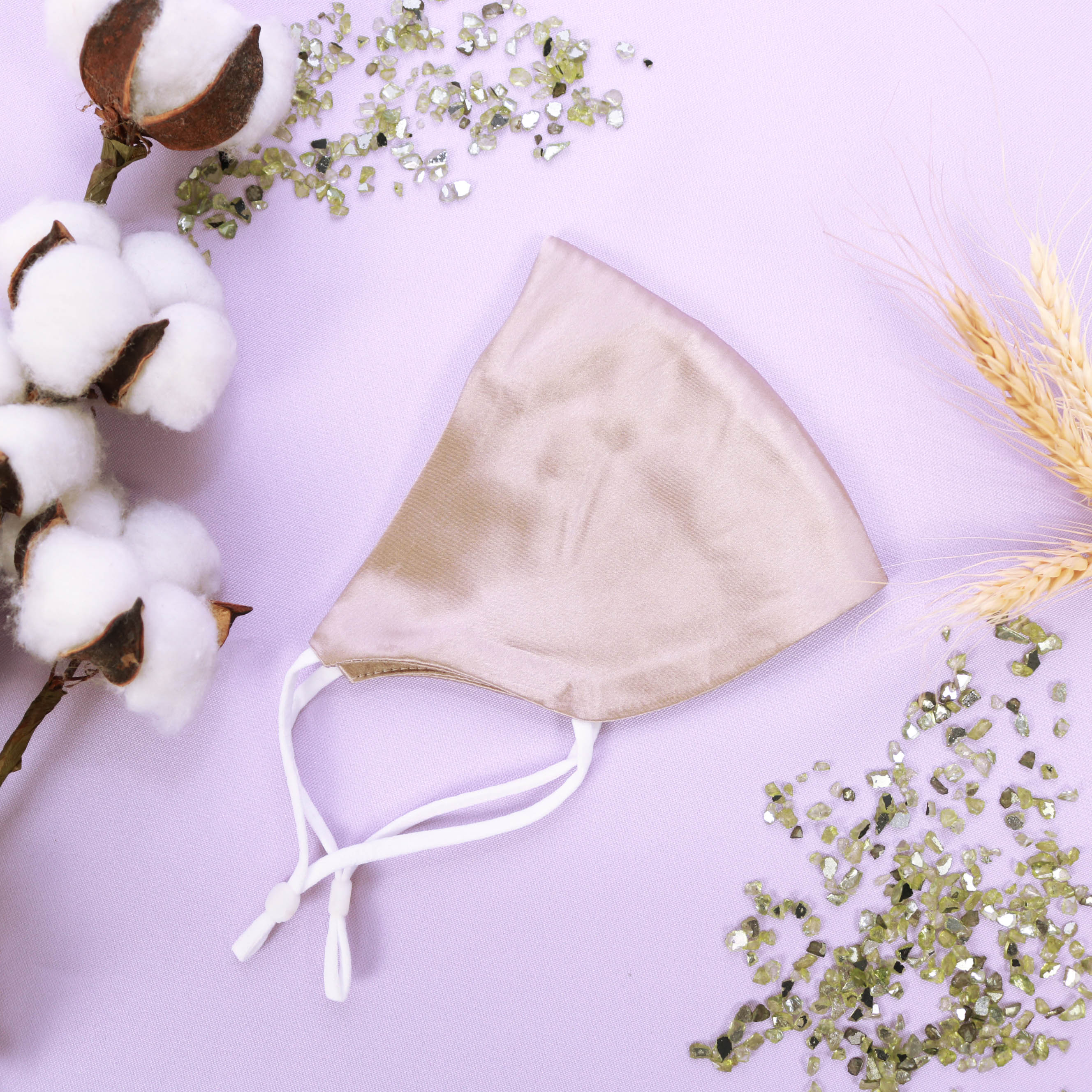Silk face masks could very well be your skin saviour—we zero in on the benefits of this luxe protective face covering
Is mask acne rearing its ugly head and you can't seem to find a proper solution despite a slew of acne treatment that is currently on rotation? You may want to consider the fabric of your face mask.
If cotton and surgical face masks are what you've been using lately, try switching to a silk face mask to help your skin condition out. While this luxe material isn't the latest in the beauty scene—you can find purveyors of silk pillowcases and scrunchies easily on Instagram with just one swipe now—silk's highly-raved benefits are more than just skin deep.
Are silk face masks as effective as surgical masks?
If you're thinking: “How effective is silk when it comes to preventing the transmission of droplets anyway?” Here's your answer—according to research done by the University of Cincinnati, silk was found to be “the most effective at preventing the penetration of droplets and the least absorptive of water” in comparison to other fabrics such as cotton and polyester.
Researchers also found that face masks that are made of 100 percent washed-silk are super breathable, do not trap water, and boast antiviral, antibacterial and antimicrobial properties. A face mask that doesn't make you feel suffocated or make you gag from prolonged hours of use? Check and check.
What can silk masks do for your skin?
A lot, basically.
One of the more notable benefits of this luxe fabric is that silk doesn't irritate the skin or even increase local humidity around the face beneath the protective coverings—even after hours of wear. Researchers have quoted that silk “may play a major role in the development of new PPE equipment, such as respirator inserts, that capitalise on its many benefits.” That stuffy, hot feeling you get after popping on a surgical mask for more than a few minutes? Not with silk masks!
For those with sensitive, acne-prone or combination skin, silk face masks could be your best bet to preventing flare-ups. But in case you're looking for an end all be all solution to mask acne, there isn't one per se—keeping up with your mask hygiene is equally as important, along with cleansing and masking regularly.

How do I pick the right silk mask?
You will want to look out for mulberry silk mask of the highest grade, 5A/6A. Touted as the finest silk out there, mulberry silk threads are stronger and smoother and comes in pure, uniform colour.
Keep an eye out for the price point as well—a face mask that is made of 100 percent silk (not a blend of satin or cotton/polyester) is most definitely pricier than your standard cotton face coverings. If it comes at a good deal (RM50 silk face masks are too good to be true, let's be honest), it's likely that it is made of lower quality silk.
Another certification to note is the Oeko-Tex® Standard 100. Developed by European textile institutes to minimise the environmental footprint of the textile industry, this global testing and accreditation program sets standards for the screening of harmful substances in textiles.
If a silk mask is Oeko-Tex® Standard 100 certified, it means that it is safe to use on your skin, and is free of chemicals/substances such as heavy metals, solvents, formaldehyde, pesticides and more.
How do I clean silk face masks?
Avoid tossing your silk face mask into the washer unless you'd like to see your latest beauty investment crumpled and damaged.
Hand wash your silk mask with a pH-neutral liquid detergent in cold or warm water (maximum of 30 degrees Celsius). You'll want to avoid soaking it in for too long—five to 10 minutes would suffice if you really need to get stubborn makeup stains out. Also, refrain from vigorously scrubbing your mask and wringing the water out—gently pressing it between your palms will do. Then, lay it flat to air dry.

Where can I shop for silk face masks?
Click here to shop! Canopy Silk Reusable 100% Pure Mulberry Silk

